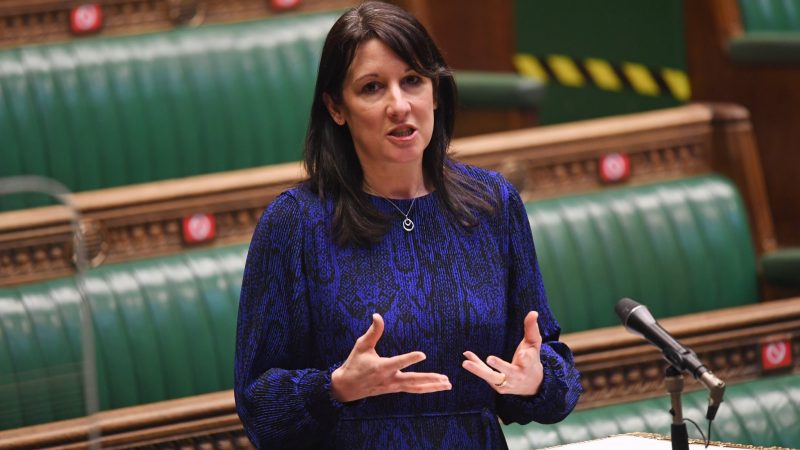
Labour’s Rachel Reeves attacked the proposal of an increase in National Insurance today by describing it to opposite number Rishi Sunak as a “manifesto-breaking, economically damaging and unfair tax on jobs”.
Keir Starmer joined the criticism, highlighting that “people will still face substantial costs” under the new government plan for social care and that the pay and conditions of care workers have not been reviewed.
“A poorly paid care worker will pay more tax for the care they’re providing without a penny more in their pay packet and without a secure contract,” the Labour leader said. He then contrasted the impact of the tax rise on different people.
“A tax rise on young people, supermarket workers and nurses. A tax rise that means a landlord renting out dozens of properties won’t pay a penny more, but the tenants working in full-time jobs would.
“A tax rise that places another burden on business just as they’re trying to get back on their feet. Read my lips: the Tories can never again claim to be the party of low tax,” Starmer told the House of Commons today.
Boris Johnson confirmed to MPs in a parliamentary statement that there would be a “1.25% health and social care levy on earned income, hypothecated in law to health and social care, with dividend rates increasing by the same amount”.
He told the chamber that this would raise almost £36bn over the next three years and “go straight to the frontline”. He explained that an income tax hike was not preferred over a rise in National Insurance as the former is not paid by businesses.
Johnson added that “everyone will contribute according to their means, including those above state pension age”. National Insurance does not normally apply to people who have reached state pension age, but the new levy will do.
The dividend tax is also going up by 1.25%, ensuring that those who receive income through dividends make the same contribution as other workers. This will affect freelancers working through limited companies.
The levy will apply from 2022. Johnson said, from October 2023, “nobody starting care will pay more than £86,000 over their lifetime and no one with assets less than £20,000 will have to make any contribution from their savings or housing wealth”.
“That’s up from £14,000 today,” he explained. “Anyone with assets between £20,000 and £100,000 will be eligible for some means-tested support. This new upper capital limit of 100,000 is more than four times the current limit, helping many more people with modest assets.”
Before the Prime Minister’s statement, Reeves made clear Labour’s opposition to the policy, saying: “The Prime Minister and the Chancellor’s plans to increase National Insurance will hit workers and business hard – at the worst possible time.
“The British Chamber of Commerce describe it as a ‘drag anchor on jobs growth’. The Federation of Small Businesses state that if this hike happens, fewer jobs will be created. And the TUC say that it is wrong to hit young and low-paid workers while leaving the wealthy untouched. We agree.”
She added: “Either National Insurance being cut benefits jobs or it doesn’t. The Chancellor told voters at the election and I quote “our plan is to cut taxes for the lowest paid through cutting National Insurance”. That promise is now in flames.
“The Chancellor isn’t cutting National Insurance, he is putting it up. It cannot be right that nurses and builders are set to pay hundreds of pounds more each year in NI, yet those getting their incomes from a large portfolio of shares, stocks and property will pay not a penny more.
“Labour cannot and will not support this Tory government’s manifesto-breaking, economically damaging and unfair tax on jobs. So let me ask the Chancellor again. Why won’t his fund health and social care in a way that is fair for families and for businesses?”
Referring to the global economic recession that took place while Labour was last in government, Sunak replied: “We have not heard once how Labour would pay for anything and we know what happened last time around when they did that.”
The TUC and Unite the Union have come out in favour of a wealth tax to fund reforms to social care, while UNISON general secretary Christina McAnea said: “General taxation should be the solution for social care, not National Insurance hikes.”
GMB, which represents carers, has declared that “our crumbling social care system desperately needs more cash” but “raising regressive National Insurance, which takes money from the pockets of the lowest-paid workers, is not the way to do it”.




More from LabourList
‘I was wrong on the doorstep in Gorton and Denton. I, and all of us, need to listen properly’
‘Why solidarity with Ukraine still matters’
‘Ukraine is Europe’s frontier – and Labour must stay resolute in its defence’